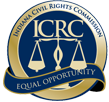INDIANAPOLIS – Three employers have been charged recently with discrimination on the basis of disability in violation of the Indiana Civil Rights Law (Ind. Code § 22-9, et seq.). The charges, each reported to the Indiana Civil Rights Commission (ICRC), involve employees facing alleged unlawful discriminatory practices on the basis of their disability.
Provided below is a brief overview of the three charges issued:
Frontier Communications Corporation (Scottsburg, Ind.)
The Complainant was hired in 2010 as a Sales and Service Technician II. At all times relevant to the Complaint, the Complainant’s duties included lifting, unloading vehicles and carrying ladders weighing up to 70 pounds. In July 2013, Complainant injured his shoulder while working and reported the accident pursuant to Respondent’s policies and procedures. Despite Respondent’s admission that it assigned a similarly-situated employee with light duty work as they recovered from their injury, they refused to grant Complainant the same opportunity.
Alcoa Incorporated (Pittsburgh, Pa)
The Complainant, employed by Alcoa Incorporated, had an approved FMLA certification for an undisclosed medical condition. This condition required the Complainant to use 300 hours, or approximately 62.5% of his intermittent FMLA leave from January 2013 to March 2013. Evidence shows that on or about March 25, 2013, the Complainant requested time off, but Respondent disputes whether Complainant explicitly stated that the absence was related to his disability. After making this request, Complainant left work; however, Respondent issued him an “incident” under the Attendance Policy and gave him a five-day suspension.
United Roll Forming (Elkhart, Ind.)
The Complainant was hired as a General Laborer in March 2013 by United Roll Forming. On or about April 18, 2013, Complainant experienced a medical episode related to his disability. However, following this episode, Respondent terminated Complainant for safety reasons. Available evidence demonstrates that Respondent failed to discuss reasonable accommodations with Complainant or make any attempt to continue Complainant’s employment. While the Respondent alleges Complainant’s termination was for safety reasons, they failed to produce any evidence showing that the Complainant violated any safety rules.
It is important to note that a finding of probable cause does not resolve a Civil Rights Complaint. Rather, it means the State has concluded its preliminary investigation and determined there is sufficient evidence to support reasonable suspicion that the Indiana Civil Rights Law has been violated. The Indiana Civil Rights Law provides remedies, including compensatory damages and injunctive relief, such as changes in the employer’s policies and training.
